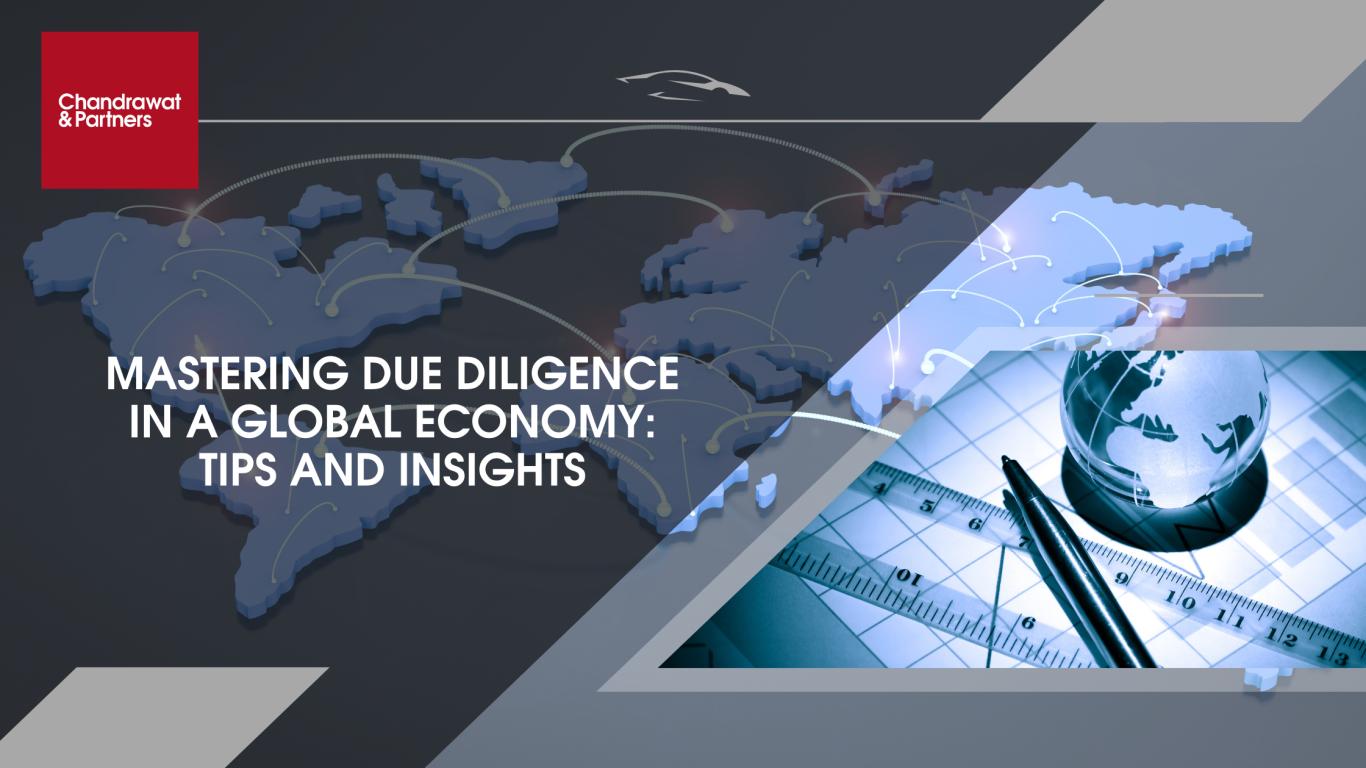Introduction
In our increasingly interconnected world, navigating the complexities of due diligence is crucial for both established companies and emerging ventures. This article serves as an essential tool, offering invaluable guidance to professionals and organizations seeking to effectively manage risks and make informed decisions.
Whether you’re a seasoned multinational corporation or a burgeoning start-up, due diligence is an indispensable component of your business journey. Here, we delve into the intricacies of the process, equipping you with the knowledge and strategies needed to navigate the global landscape with confidence.
What is due diligence?
Due diligence entails the comprehensive process undertaken by an organization to meticulously examine and authenticate an entity before engaging in any business relationship, be it with a supplier, an external partner, or a customer.
In a broader business context, due diligence entails meticulously scrutinizing factors impacting the business with thoughtful and meticulous consideration. It signifies a proactive approach, aimed at addressing issues pre-emptively rather than merely reacting to problems as they arise.
Understanding Due Diligence in A Global Context
Due diligence is the process of conducting a comprehensive investigation or audit of a potential investment or business opportunity to confirm all relevant facts and financial information, typically before entering into a contract or transaction. In a global economy, due diligence takes on added complexity due to differences in regulatory environments, cultural norms, and business practices across different countries and regions.
Strategies For Effective Due Diligence
Effective due diligence in a global context requires a strategic approach that accounts for the complexities of operating across borders, including varying regulatory frameworks, cultural differences, and market dynamics. Here are some strategies to enhance due diligence effectiveness in a global economy:
- Build a Multidisciplinary Team: Due diligence involves analysing various aspects of a business or investment opportunity, from legal and financial to operational and cultural factors. Assemble a diverse team with expertise in law, finance, accounting, market research, cultural intelligence, and technology. This multidisciplinary approach ensures comprehensive coverage and insights from different perspectives.
- Leverage Technology Tools: Embrace technology to streamline the due diligence process and gather insights more efficiently. Utilize due diligence software platforms, data analytics tools, and online databases to automate data collection, analyse large datasets, and identify potential risks or opportunities. These tools can enhance the speed, accuracy, and scalability of due diligence efforts, especially when dealing with complex global transactions.
- Plan for Contingencies: Anticipate potential risks and develop contingency plans to mitigate any adverse outcomes that may arise during the due diligence process. Identify alternative strategies, negotiate contractual protections, and allocate resources accordingly to address potential issues or uncertainties. Stay flexible and adaptable to changing circumstances, particularly in fast-paced global markets characterized by volatility and uncertainty.
Emerging Trends and Best Practices
As businesses continue to navigate the complexities of operating in a global economy, emerging trends and best practices in due diligence play a crucial role in enhancing the effectiveness and efficiency of the process. Here are some key emerging trends and best practices in global due diligence:
- Utilization of Data Analytics and Artificial Intelligence: Data analytics and AI technologies are revolutionizing the due diligence process by enabling faster and more accurate analysis of large datasets. Advanced data analytics techniques, such as predictive modelling, machine learning, and natural language processing, can uncover hidden patterns, anomalies, and insights from structured and unstructured data sources. AI-powered tools automate repetitive tasks, such as document review, contract analysis, and compliance screening, freeing up human resources to focus on higher-value activities and strategic decision-making.
- Enhanced Cybersecurity Due Diligence: With the increasing prevalence of cyber threats and data breaches, cybersecurity due diligence has become a critical component of global transactions. Businesses are conducting more thorough assessments of target companies’ cybersecurity posture, including IT systems, data protection measures, incident response capabilities, and compliance with data privacy regulations. Cybersecurity due diligence helps identify potential vulnerabilities, assess the impact of cyber risks on the transaction, and develop risk mitigation strategies to protect sensitive information and preserve business continuity.
- Emphasis on Cultural Due Diligence: Cultural due diligence is becoming increasingly important in global transactions, particularly mergers, acquisitions, and partnerships involving cross-border teams and diverse stakeholders. Businesses are recognizing the impact of cultural differences on organizational culture, leadership styles, communication norms, and decision-making processes, and the need to assess cultural compatibility and alignment during due diligence.
Case Studies and Real-World Examples
To illustrate the importance of mastering due diligence in a global economy, consider the following case studies:
- M&A Due Diligence: A multinational corporation looking to acquire a smaller company in a foreign market conducts thorough due diligence to assess the target company’s financial stability, market position, and regulatory compliance. By identifying potential risks and opportunities early in the process, the acquiring company can negotiate more favourable terms and mitigate integration challenges post-acquisition.
- International Expansion: A technology start-up seeking to expand into new international markets conducts market research and due diligence to evaluate market demand, competitive landscape, and regulatory requirements in target countries. By understanding the unique challenges and opportunities of each market, the company can develop tailored strategies for market entry and growth.
Conclusion
Mastering due diligence in a global economy requires careful planning, thorough analysis, and effective communication across borders and cultures. By following the tips and insights outlined in this blog post, businesses can mitigate risks, seize opportunities, and achieve success in today’s interconnected world. Whether you’re pursuing investment opportunities, engaging in mergers and acquisitions, or expanding into new markets, thorough due diligence is essential for informed decision-making and long-term business growth.
How we can help?
Chandrawat & Partners firm is committed to providing comprehensive assistance to our clients in mastering due diligence in a global economy.
- Expertise in International Laws and Regulations: Our team of legal experts possesses in-depth knowledge of international laws and regulations governing due diligence processes across various industries and jurisdictions. We can provide valuable insights into the legal frameworks that clients need to navigate when conducting due diligence on a global scale.
- Tailored Due Diligence Strategies: We understand that each client and each due diligence process is unique. We work closely with our clients to develop tailored due diligence strategies that address their specific needs, considering factors such as industry standards, regulatory requirements, and risk tolerance.
- Risk Assessment and Mitigation: Our firm excels in identifying potential risks and vulnerabilities during the due diligence process. We conduct thorough risk assessments and offer practical advice on mitigating risks to protect our client’s interests and investments in the global market.
- Ongoing Support and Monitoring: Our commitment to clients doesn’t end with the completion of due diligence. We provide ongoing support and monitoring to help clients navigate evolving regulatory landscapes and address any emerging issues that may arise post-transaction.


